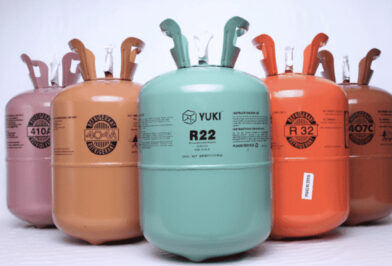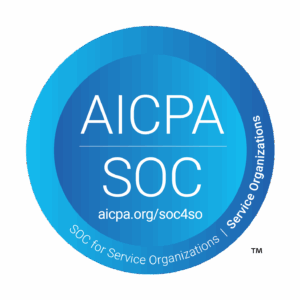Heating, ventilation, and air conditioning (HVAC) services are common household items used to heat and cool buildings and homes. With New York as one of the most populous states in the country, it’s no wonder that HVAC is a highly sought service.
Statistics show that HVAC professionals are already in high demand in every state, with an expected 15% increase in job openings in the industry through 2026. If you’re looking to get started in the HVAC industry, it’s vital to understand the differences in licenses and state requirements.
Meeting the Criteria
An HVAC license in New York is not mandatory statewide, but some municipalities have specific requirements. For example, Syracuse requires a license with specific education and experience, as well as being able to pass an exam.
Buffalo, on the other hand, requires a license for doing work as a heating contractor, including submitting a work history and references before being permitted to take an exam.
When running an HVAC business, it’s essential to understand the different requirements depending on where you work.
Additionally, the license may vary depending on the type of work that is being performed and the equipment that you install or operate.
In New York City, for example, there are three different types of HVAC-related licenses:
- High-Pressure Boiler Operating Engineer
- Oil Burning Equipment Installer
- Refrigeration Operating Engineer Certificate of Qualification
A High-Pressure Boiler Operating Engineer is expected to meet one out of eight experience or education requirements, as well as take a written and practical exam. Additionally, they must pay a license fee and a renewal fee every three years.
An Oil Burning Equipment Installer has two classes; Class A and Class B. A Class A license requires four years of experience, while Class B requires only three years of experience. For both licenses, the person must be able to pass a written and practical exam and pay licensing fees and a renewal fee every three years.
Types of HVAC Licenses in New York
Even though licenses aren’t required on a state level, contractors can obtain several types to enhance their credibility and expertise for work in New York.
It’s important to understand the different licenses available to ensure you remain in compliance with the municipalities in which you plan to practice your trade:
- EPA licenses: The Clean Air Act requires HVAC professionals who work with refrigerants in the United States to comply with EPA standards and certifications. Under EPA Section 608 certification, individuals must be trained on the safe handling of refrigerants by passing an exam. There are four types of EPA license exams that individuals can take to complete their HVAC certification, depending on what type of equipment they service.
- NATE certificates: The North American Technician Excellence (NATE) is the nation’s largest non-profit certification organization for HVAC technicians. NATE certificates are optional HVAC certifications in New York but help confirm an HVAC technician’s experience and expertise, including both residential and industrial repairs and projects. NATE technicians in New York can expect to get paid more for a job due to their certifications than others.
- Local licenses: Depending on the county or city you work, HVAC systems in New York might have requirements for local licenses. If you’re looking to work as an HVAC professional across multiple counties or cities within the New York area, then it’s important to understand the different requirements and ensure you stay up-to-date with them.
Benefits of Getting an HVAC License in New York
Securing an HVAC license in New York extends beyond a mere certification – it opens up a realm of job opportunities across various cities. The ability to work in multiple locations not only broadens your professional horizon but also provides diverse experiences in different environments.
Moreover, obtaining a license doesn’t just validate your skills; it translates into tangible financial benefits. With proven certifications and a honed skill set, you can anticipate an increase in salary expectations, reflecting the value you bring to the industry.
One significant aspect of HVAC licensing is the competence to handle refrigerants properly. This skill not only ensures compliance with regulations but also demonstrates your commitment to safety and environmental responsibility.
Job security is a paramount concern in any profession, and holding the appropriate credentials in the HVAC field provides a strong foundation. With a license, you not only establish yourself as a reliable and qualified professional but also reinforce the trust that clients place in your abilities.
Additionally, being open to sponsoring licenses attracts a skilled applicant pool, enhancing your team’s overall competence and showcasing your commitment to employee growth.
HVAC License Fees in New York
Obtaining an HVAC license or certificate in New York can also come with a cost. Fees can vary by the type of license, how many exams are required, and how often they need to be renewed.
An EPA Section 608 license can cost between $25-$50 for an exam, while NATE certificates can range between $50-$100. In addition, other costs to consider include workers’ compensation insurance and liability.
In areas that require licenses, contractors should expect to pay for required insurance as well. When budgeting for the year, contractors should note the potential costs depending on the location and services they plan on providing.
There are no minimum insurance requirements or safety bonds when working as an HVAC technician in New York. However, there are workers’ compensation insurance and liability requirements depending on the municipality you’re working in.
Determining what you’ll need to conduct work in a certain area of New York, as well as the type of work, is pertinent to your company’s success, especially if you’ve accounted for the licenses and requirements specific to that area. Those who have not taken the additional steps to determine what they’ll need could face fines, fees, or liability.
Although it might take some time and research, these preventative measurements could make or break your company’s success.
Final Thoughts
HVAC systems are always in high demand, from sky-scraper maintenance and building departments to heat waves and winter storms. New York is considered one of the top five states to work as an HVAC mechanic.
HVAC professionals in New York must stay informed on the latest and greatest licensing rules and regulations, and suggestions to ensure they maintain the highest level of professional standards.




